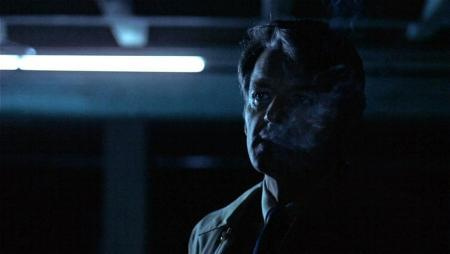Homeland Security, FOIA and the governing cult of secrecy
 Thursday, March 31, 2011 at 1:19AM
Thursday, March 31, 2011 at 1:19AM 
Of course no one would have dreamed of such a hearing the last time Republicans controlled the House of Representatives: 'Why Isn't The Department Of Homeland Security Meeting The President's Standard On FOIA? No matter the political leveraging behind the committee session On Oversight & Government Reform, President Obama's administration has proven itself not much more FOIA-friendly than George W. Bush's.
At said hearing happening today, the committee will listen to testimony by former Chief Privacy Officer Mary Ellen Callahan (an appointee of Homeland Security Secretary Janet Napolitano). As the official in charge of transmitting sensitive government files to political advisors for vetting before such documents can be released to the public, she confided to her then-deputy, Catherine Papoi, what a zealous ideological scouring they endured. "This level of attention is CRAZY," she wrote in a 2009 email, and expressed the hope that "someone [would] FOIA this whole damn process."
Perhaps such frank talk by a federal paper pusher may sound unbecoming, however, it may be an emblem of the extraordinary level of screening applied to the release of government records. Ms. Callahan would not be the first guest of the Oversight & Governement Reform Committee to suggest this.
William Leonard, current COO of the National Endowment for Democracy, testified to the same congressional committee on March 14, 2006--when he was classification czar for the National Archives-- asserting the extreme lengths taken for secrecy's sake. Yes, insufficient classification of military or government documents poses a potential threat to national security and can undermine diplomatic efforts. "Conversely, too much classification, the failure to declassify information as soon as it no longer satisfies the standards for continued classification, or inappropriate reclassification, unnecessarily obstructs effective information sharing and impedes an informed citizenry, the hallmark of our democratic form of government."
More recently, as a panelist at the Criminal Law, National Security, and the First Amendment symposium held in Washington, DC in October 2010, Leonard said there was no defense for Wikileaks' unlawful disclosure of the Iraq and Afghan military diaries. Rightfully, governing officials have condemned such actions, he goes on, “…but I have yet to see any of our government leaders accept responsibility for what is directly under their control, and that is the reckless manner in which the critical national-security tool is applied.” Or one could argue, the reckless manner in which it isn’t applied.
As an example he pointed out that no classification distinction exists between a document reporting an auto accident and a document that records the identity of an Afghan national serving as an informant. Additionally, the former secrecy czar argues with blinding logic that in the case of a situation like Abu Ghraib, the abuse endured by captured enemy combatants or high-value targets, at the hands of U.S. ordered interrogations, isn't subject to classification because the experience itself isn't a secret to the victim of torture; nor are they required to sign a non-disclosure agreement should they be fortunate enough to be released.
From today's House hearing on Homeland Security's FOIA obligations, don't expect too much in the way of questioning that interrogates our government's prevailing paradigm of secrecy. To enable such a line of inquiry would require an open national debate about exactly what national security factors that merit privilege over civil and human rights.